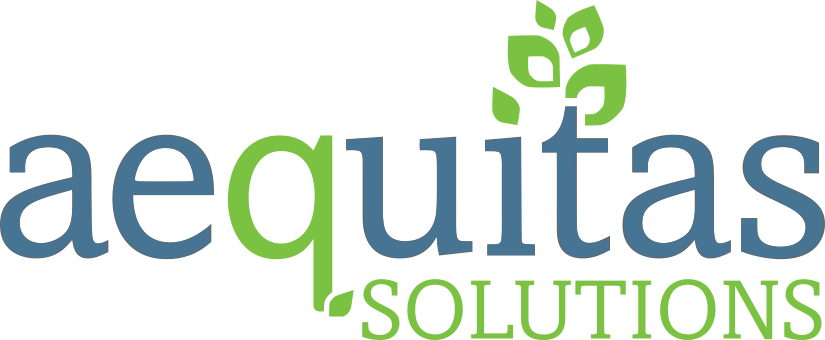Schools have the essential and often distinct responsibilities of addressing students’ academic, social, and emotional needs. To achieve this, educators rely on evidence-based frameworks to inform their decisions and determine the most effective support and intervention strategies.
Among the most widely used frameworks for student academic and social growth are Multi-Tiered System of Supports (MTSS), Positive Behavioral Interventions and Supports (PBIS), and Response to Intervention (RTI). While each approach is different, their integration creates an educational environment that promotes student success.
From academic help to behavioral guidance, these frameworks give schools holistic, data-driven methods to support their students. This article explores the components of MTSS, PBIS, and RTI and how they complement one another to support the whole child.
Multi-Tiered System of Supports (MTSS)
MTSS are structured programs that support students’ academic, behavioral, and social-emotional needs through tiered interventions and personalized learning strategies. MTSS uses academic and behavioral data to identify students who need additional support. It allows educators to create individualized intervention plans focusing on the whole student, connecting each learner’s academic success to their well-being.
MTSS has three tiers of support that increase in intensity based on student needs.
Tier 1 – Universal Support: The first tier provides high-quality instruction and interventions designed for all students. Think of it as the foundation—ensuring every learner has access to robust teaching and supportive environments.
Example: A school-wide behavior system rewards students for helping peers or following classroom rules. This creates a culture of positivity at the school.
Tier 2 – Targeted Interventions: This level is for students who need additional help beyond Tier 1. Interventions in this tier often involve small group sessions where learners focus on specific skills.
Example: A guided reading group helps students struggling with comprehension develop targeted strategies.
Tier 3 – Intensive, Individualized Support: Tier 3 is the most personalized level of support and provides individualized interventions for students with significant academic or behavioral challenges. This tier focuses on one-on-one support with interventions tailored to each student’s needs.
Example: A student struggling with basic math skills receives daily one-on-one tutoring and specialized resources to build foundational understanding.
MTSS often also encompasses PBIS and RTI.
Positive Behavioral Interventions and Supports (PBIS)
PBIS, or positive behavioral interventions and supports, focuses on improving student behavior by setting clear expectations for students and rewarding their positive actions. Instead of using punishments, this approach focuses on helping students learn appropriate behaviors.
PBIS also works on multiple levels, including school-wide programs, classroom strategies, and individual support. For example, a school might implement a new system where students earn points for positive behavior, like helping others or following school rules. These points can be exchanged for privileges, like extra recess or fun activities.
This framework reduces discipline problems by focusing on a supportive classroom environment versus a punitive one. It gives students clear guidelines and positive reinforcement to help them succeed. Over time, this system builds a school culture that supports both learning and respect between teachers and students.
Response to Intervention (RTI)
Response to Intervention (RTI) provides targeted academic support to address learning difficulties, particularly in core areas like reading and math. It ensures students receive instruction and interventions to meet their individual needs.
RTI uses regular screenings of all students to identify those who are struggling and provides research-based interventions to help them succeed. School administrators closely monitor progress to evaluate whether the interventions are effective or if they need to make changes.
The RTI framework is structured in tiers of support, like MTSS and PBIS. RTI helps prevent academic failure while also identifying students who may require special education services.
How MTSS, PBIS, and RTI Work Together
Integrating MTSS, PBIS, and RTI creates a comprehensive support system that addresses students’ academic and behavioral needs, ensuring they receive well-rounded interventions. While each framework has a distinct focus—PBIS on behavior, RTI on academics, and MTSS on the whole child—their overlap improves student outcomes.
A Case for Integrating the Frameworks
PBIS ensures that students understand the behavior they need to learn successfully. Positive behavior management creates a more focused and productive learning environment, while RTI offers academic support.
RTI addresses academic difficulties by providing tiered interventions based on data-driven assessments. These interventions are tailored to the student’s academic needs, supporting their learning journey alongside the behavioral benefits provided by PBIS.
These frameworks work together to create a smooth process for supporting each student’s development. For example:
- A student who struggles with both reading (RTI) and disruptive behavior (PBIS) can be supported through Tier 2 interventions in both areas, coordinated by the MTSS framework.
- As a student progresses through the tiers, both academic and behavioral interventions become more personalized and intensive, ensuring that every student’s needs are met.
Benefits of Integrating PBIS, RTI, and MTSS
The benefits of integrating MTSS, PBIS, and RTI extend beyond individual student success—they positively impact school culture, family engagement, and the district’s operational efficiency. Below are some of the key advantages of this integrated approach.
Improved Student Success
Students receive the targeted support they need to succeed by simultaneously addressing academic and behavioral challenges. This integrated approach results in higher academic achievement, improved behavior, and enhanced social-emotional well-being.
Efficient Use of Resources
The integrated frameworks reduce redundancy, streamline interventions, and optimize staff and tools. By streamlining efforts, schools can save time and resources while improving student outcomes.
Early Identification and Prevention
Universal screening and continuous monitoring allow schools to identify students at risk earlier. Proactive interventions prevent minor challenges from escalating into larger academic or behavioral issues.
Stronger School Culture
PBIS creates a positive, predictable environment where students understand behavioral expectations. Paired with academic support through RTI and a whole-child focus in MTSS, this creates a school culture prioritizing success for every student.
Enhanced Communication
With MTSS, teachers and administrators work together under a unified framework that helps improve communication. Parents and guardians also benefit from more transparent and consistent communication about their child’s progress and support plan.
Adaptability and Scalability
The tiered structure of these frameworks allows schools to adjust interventions based on changing student needs. The system is flexible and scalable for a single classroom or district-wide implementation.
Integrating MTSS, PBIS, and RTI for Every Student
As schools face increasing demands, aligning MTSS, PBIS, and RTI provides a strategic approach that prioritizes the whole child, strengthens school culture, and empowers all students to succeed. By addressing both academic and behavioral needs within a coordinated, data-driven system, schools can create an environment that fosters success for every student.
A comprehensive Student Information System can help integrate MTSS, PBIS, and RTI by providing real-time data, tracking student progress, and ensuring seamless communication between educators. With our SIS, Q, schools can streamline these processes, making it easier to identify needs, implement interventions, and track outcomes across all tiers of support.
To learn more about how we can enhance your MTSS, PBIS, and RTI efforts to support the whole student, contact us today.


